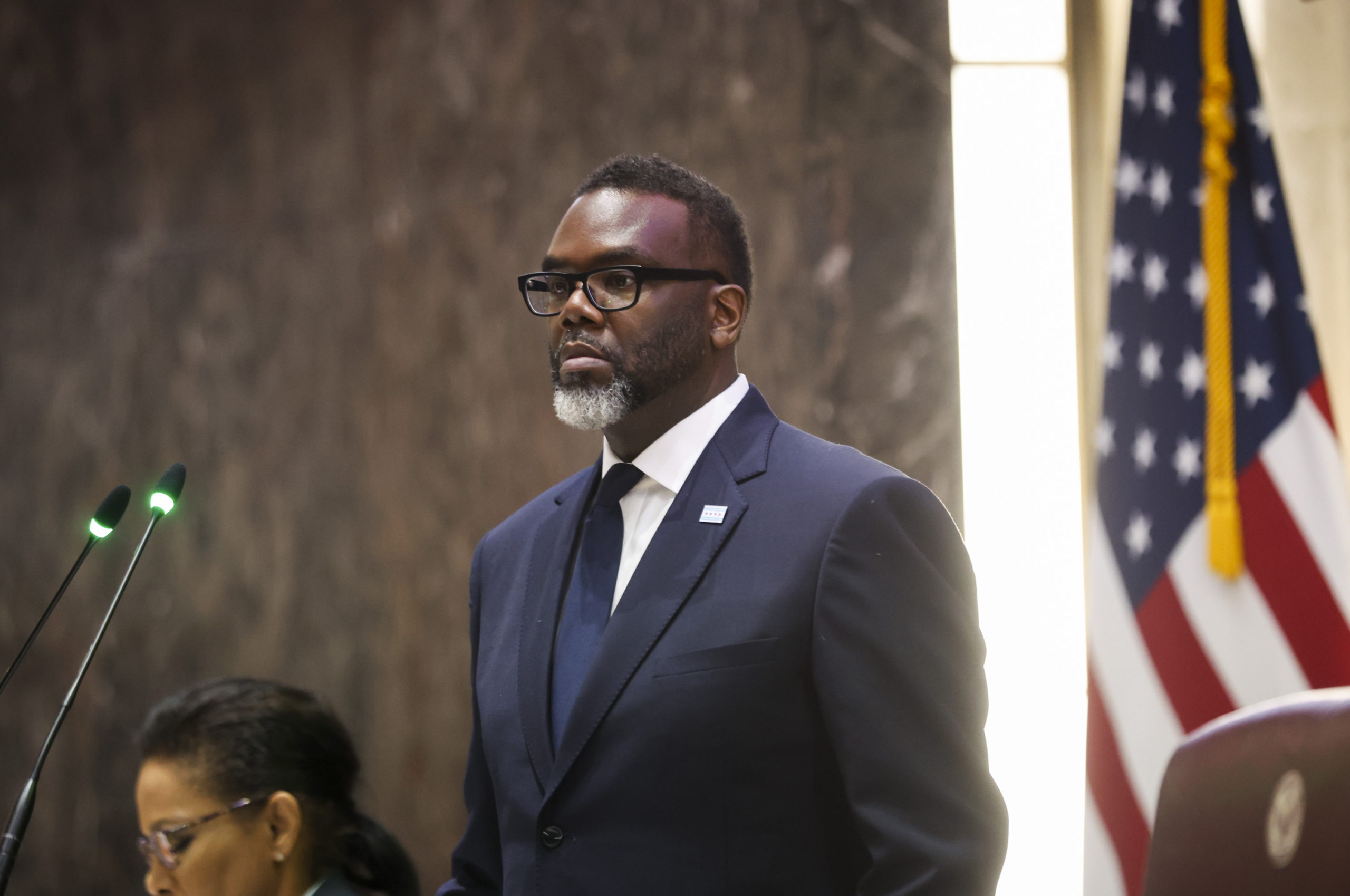Mayor Brandon Johnson presides over a Chicago City Council meeting at City Hall on April 17, 2024, in Chicago. (Eileen T. Meslar/Chicago Tribune/TNS)
On April 19, after delaying the vote by a week, the Chicago City Council approved $70 million in funding for incoming migrants— and a $1.25 billion bond for housing and development. The approved funds will be used for food and other operational costs.
The vote was 30-18 and will help provide shelter for incoming migrants. There was also $48 million in grant money approved to cover the debt from prior shelter costs.
Mayor Brandon Johnson had previously budgeted $150 million for migrants seeking asylum in his 2024 budget year. The city has also been unable to get more funding from the federal government, leading to further challenges.
Chicago has been managing shelter issues since August of 2022. Along with New York City, Denver, and other sanctuary cities have struggled to find housing for immigrants coming from Mexico, Venezuela, and other parts of South America, often leading city officials to improvise shelters.
Migrants were originally sent to these cities by Texas Governor Greg Abbott as a part of his border security program “Operation Lone Star.” Rather than ease the pressure it puts on Texas, it has only spread strain to other states. In Chicago, airports and police stations have had to house families while those in city hall struggle to meet their growing needs.
Some alderpeople present at the meeting on April 19 were concerned with how this decision would affect the city.
“We have 3,200 children in our shelter system. Where will they go when we can no longer operate our shelters?” Alderperson Jessie Fuentes (26th Ward) said during the city council meeting.
“To say yes to economic development in Chicago, acknowledging it’s the very backbone of our city. We’re going to vote yes for housing as a right, a bond issuance that understands that we have to house people that are currently living in tents.” she continued.
On the other hand, Alderperson Anthony Beale (9th Ward), believes that this funding is only a temporary solution. He had this to say about what the increased funding will do for the city:
“Which still is not going to be enough money to get us through the rest of the year. Why? Because we’re anticipating that we’re going to have about 5 thousand people a week coming… starting in just a few days.”
Alderperson Andre Vasquez (40th Ward), the Chair of the Committee on Immigrant and Refugee Rights also commented on how he feels about the funding approval.
“Whether you call it a sanctuary city or not, you are kidding yourself if you think that’s going to slow the buses down.”
Alderperson Nicole Lee (11th Ward) also expressed concerns about the state of migrant shelters.
“Look, we are paying Ritz Carlton rates for Super 8 service. I wouldn’t want to be a migrant living in the shelter on Halsted,” Lee said, referring to a shelter in Pilsen where occupants fell ill due to spoiled food and unsanitary conditions.
Only time will tell if the increase in funding will help create a comfortable environment for incoming migrants.

